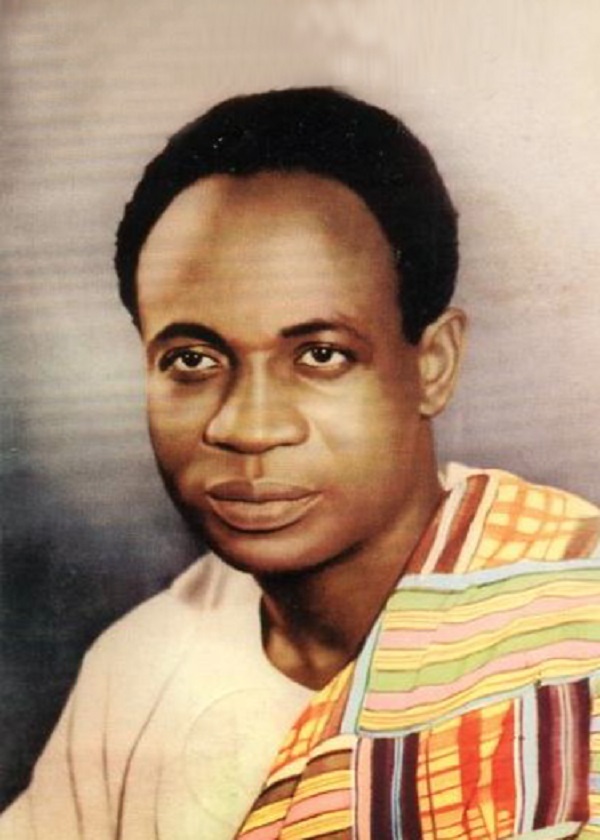Dr Kwame Nkrumah, led Ghana to independence from British colonial rule in 1957 and encouraged many other African nations to do the same! PHOTO/Graphic Online.
By MORRIS ODHIAMBO
If one reads Joseph Stiglitz’s work, “Globalisation and its Discontents”, one could easily agree with the thesis that says “Globalisation is the highest stage of imperialism”.
Having worked with the World Bank during the time when the Washington Consensus was being formulated as the post-Cold War cornerstone of neo-liberal economics, Stiglitz’s account was a concise insider narration.
Indeed, the framework of globalisation remains an influential paradigm through which the global political economy can be critically interpreted and understood.
It reminds one of Lenin’s “Imperialism, the Highest Stage of Capitalism”, and Kwame Nkrumah’s “Neo-colonialism, the last Stage of Imperialism”. These writings are based on a paradigm that is critical of global political economy.
My concern today is with cultural globalisation, a forgotten, but important sub-topic within the broader globalisation discourse.
One day, many years ago, I sat with a Disk Jokey in one of the Frequency Modulation (FM) Radio Stations in Nairobi and asked him why they always play Western music and not African and Kenyan music. The DJ, who is also a well-known football commentator, answered that they were simply playing the music that their listeners preferred. Their listeners, in this case, were mostly young people.
From my communication background, I could have poked a lot of holes in that simple statement and showed how unscientific it was. But I will only point out one thing. When I asked whether the FM station had any way of measuring the listener-ship, the answer was in the negative.
In the science of communication, there is something called subliminal influence. One can also talk of subliminal messaging or subliminal persuasion.
Scholars who support the thesis of subliminal influence insist that communication can lead to behaviour change or shape one’s preferences. It is partly the basis for behaviour change communication that has over the years used effectively to stem the spread of HIV/Aids.
My thesis today is that subliminal influence plays a big role in promoting cultural globalisation. A simple definition of cultural globalisation is the flow of information, people, cultural practices, music, tests, and styles from one corner of the world to the other. As the name suggests, cultural globalisation happens at a global scale. The media is a key agent of cultural globalisation.

Professors Ali Mazrui, Yash Tandon, and Mahmood Mamdani are among the leading scholars when it comes to the topic of globalisation. Mazrui’s most iconic writings on the topic include “From Slave Ship to Space Ship: Africa Between Marginalisation and Globalisation”, and “Globalisation, Islam and the West: Between Hegemonisation and Homogenisation.”
In “Globalisation, Islam and the West: Between Hegemonisation and Homogenisation”, Mazrui expounded on the two related concepts of homogenisation and hegemonisation as the two sides of the globalisation debate. In that article, he pointed out as follows,
“This brings us to the twin concepts of homogenization and hegemonization. One of the consequences of globalization is that we are beginning to resemble each other to a much greater degree than we ever did in the past, regardless of physical distance. Homogenization is increasing similarity.
“The second accompanying characteristic of globalization is hegemonization, by which I mean the paradoxical concentration of power in a particular country or civilization. While homogenization is the process of expanding homogeneity, hegemonization is the emergence and consolidation of a hegemonic center.”
“As the twentieth century comes to a close, people dress more alike all over the world than they did at the end of the nineteenth century (homogenization). But the dress code being globalized is overwhelmingly that of the West (hegemonization).
Indeed, the man’s suit (Western) has become almost universalized throughout the world, and the jeans revolution has captured the dress culture of half of the world’s young people” he further stated.
The dominant hip-hop culture of the West promoted by our own media has today given rise to the Wasanii culture (represented by “gengetone” and others) in Kenya.
As extensions of the Western cultural globalisation infrastructure, the media in Kenya emphasises the Wasanii rap, hip hop culture and almost totally ignore the creative and rich heritage of benga, bango, taarab, ohangla, kilunda, etc.
The most significant point, however, is that cultural globalisation is the software of economic globalisation in which Africa’s position is relegated to the periphery! And this is what must concern all promoters of Panafricanism!
The writer is vice-chairman, Diplomacy Scholars Association of Kenya (DIPSAK) and coordinator, Missing Voices Coalition (MVC) in Kenya.


















